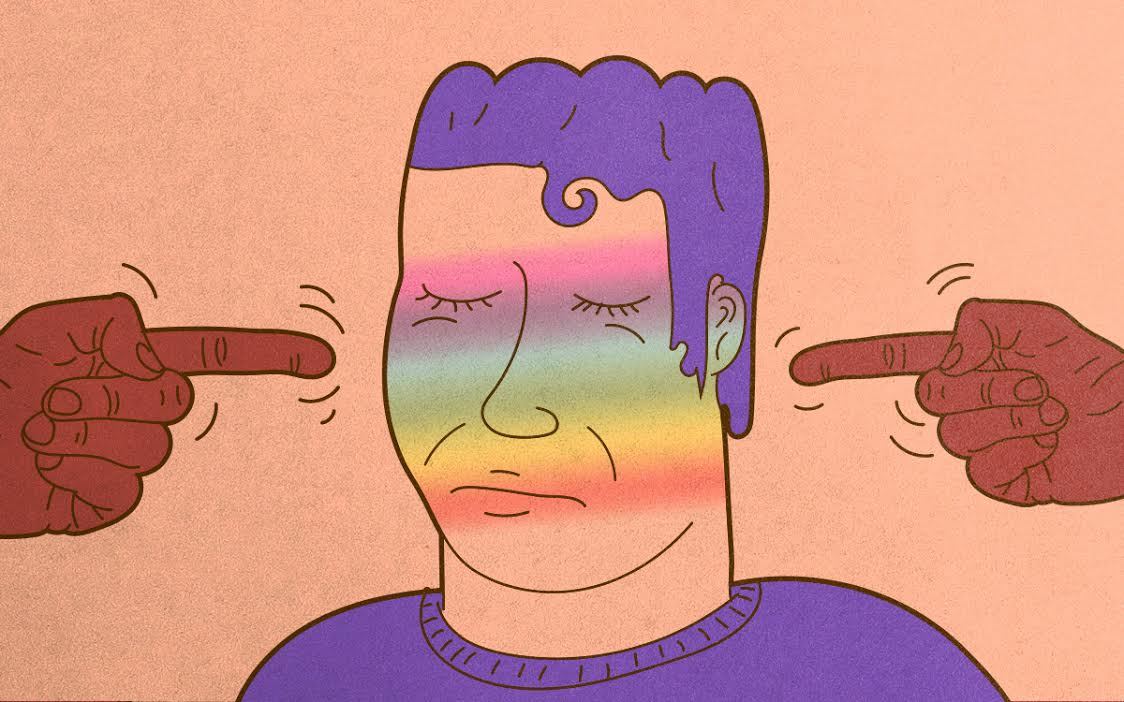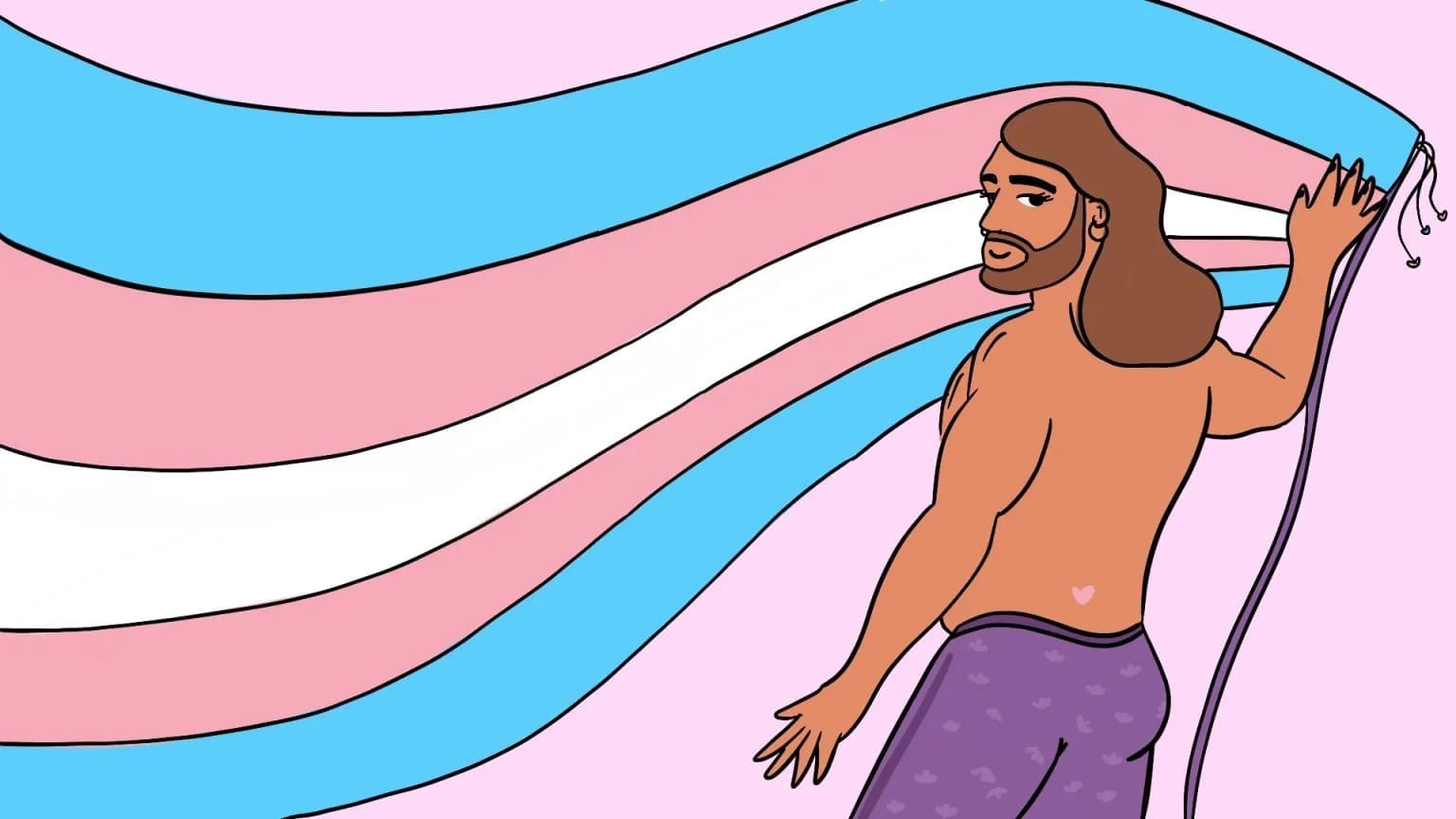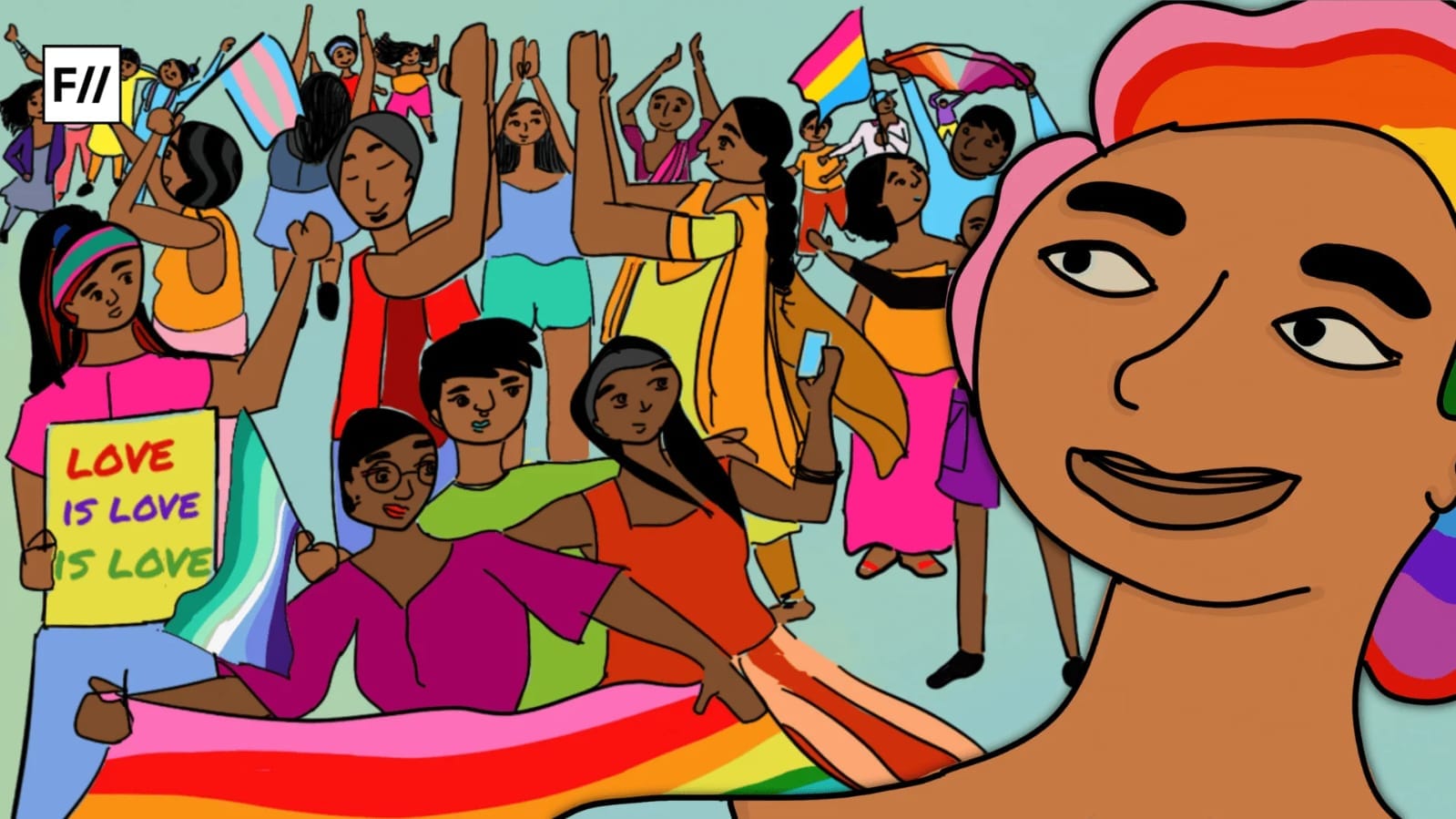When my maternal uncle called to out me to my mother, I was not home. The conversation was had in implications – like all matters of purported ‘shame’ are had – sans the courage of explicit referencing. Yet, it was as mortifying for my mother as it would have been had the word ‘queer’ been uttered. Maa told me exactly what he had said in painstaking detail, evidencing its distressing hold on her psyche. Uncle had apparently seen some of my very unremarkable pictures with my friends and had come to the conclusion that I needed to be married off to a man, sooner than later. Apparently, the pictures, if not self-evidently queer, had clearly given off a queer vibe.
I tried to mentally go over all the photos I had hitherto uploaded. They were nothing short of ordinary. “What gave me away?”, I wondered. To my mind, I had always successfully and effortlessly passed as straight to all the uncles and aunties in my family owing to my femme presentation – an invisibility doubling as a privilege that seemed to protect me loyally. Moreover, I had never considered this cisgender heterosexual uncle capable of reading queer affection for what it is, least of all through the pictures I was uploading on Whatsapp as my display image.
As I struggled to wrap my head around how this man could get near my truth, Maa made a discomfiting revelation – my queerness had been a matter of family gossip for years. Even though uncle had mentioned the photos, they were not solely responsible for what was being said and urged to be done. “I didn’t tell you because I knew you would be upset”, said my mother to whom I had come out several years before my uncle took it upon himself to out me without my consent and suggested marriage as an annihilation of my queerness.
Miseries do not begin without a preamble and here is mine. I was 19 when I started dating a woman for the first time. She was every definition of wonderful in my book and long story short I was exhilarated for two summers. Having failed at containing the exuberance of youth and a new love, I had outed myself to a cousin who received the information with surprise – or perhaps amusement – but not with overt hostility or reproach.
It had seemed good enough for me at the time. I was much younger, a lot less resourceful, barely a year into college, out to nobody, struggling to figure out how my queer life would sustain itself in a heteronormative world where I was virtually invisible. Wanting to be seen as a queer person was embedded in my desire for validation of my queerness and I wanted to source it from a familiar place.
Wanting to be seen as a queer person was embedded in my desire for validation of my queerness and I wanted to source it from a familiar place.
I now realise that I could not have been more wrong about what I understood to be familiarity. Your perception of familiarity can be fragile when you are experiencing the world from the margins – everyone is a potential stranger. If I could wish for an enduring, irrevocable power, I would wish for the wisdom and discernment that is the gift of hindsight. I wish I had known that by outing myself to this cousin I would be outing myself to the entire extended family on my mother’s side. I wish I had known that it would bring about a kind of recognition I never wished for – it is called abjection.
The mother of the cousin I had outed myself to went on to out me in my absence during a family gathering and ever since I have been the curious object of ceaseless family gossips. Everyone talks about what I am and everyone wishes I was not or at least hopes I do not decide to be in the coming years. Everyone either dismisses or disproves my queerness – a part of me I nurture with care, a part of my being that serves as motivation for my becoming, a part of me I have learned to be grateful for.
Also read: Dear Straight People, Stop Teaching Me How To Be Queer
“I won’t call him again” my mother said ruefully, knowing very well it was a promise she could ill afford to keep. When everything became clear to me and I put all the pieces of the puzzle together I realised why my uncle’s wife asked me at almost every family gathering when I planned to get married, if I wanted to get married at all. The questions were always intended in search of the confession I sternly refused to furnish.
Now, the more I thought about the conversations and the years of speculation that had made them happen, the angrier I got. I was angry at the injustice of all the people who outed me, broke my trust, derided my queerness, took away my privacy from me and at everyone who believed my queerness was dispensable. I wanted to shout, cry, break things, but most of all, I desperately wanted to pick up the phone to tell them in no uncertain terms, and unapologetically, what a violent and unethical thing it is to out a queer person without our knowledge and permission, to suggest that our freedom be taken away as punishment for our romantic, sexual transgressions.
Violence defines heteronormativity, heteronormal institutions, liaisons and systems of regulation that continually reinforce each other. Some violence occurs surreptitiously but it makes you feel like the prisoner of a panopticon – you cannot let go of the feeling of being watched relentlessly. The system decides your boundary. However, despite the unambiguous knowledge of this injustice, you are not allowed to exhibit any kind of ire or rage. And that is an injustice in itself.
I meet these relatives every now and then. And every single time all I want to do is confront them, name the violence they visited on me, remind them of the injustices they pretend to not be in the know of. However, social niceties have the power of casting out righteous indignation. So, I exchange smiles and engage in polite small talk despite myself.
I have learned from having struggled with myself for years that there is language for my pain but no security when it is articulated, no refuge or calm when it is revealed. There is no room for rage. There is no promise of healing. Cishet civility is a hassle for queer people. It creates no safe spaces for our anger to be understood as critique and as protest against normativity. All avenues of conversation and understanding are already always closed off and rendered into various impossibilities.
Cishet civility is a hassle for queer people. It creates no safe spaces for our anger to be understood as critique and as protest against normativity.
These affective impossibilities are the cause and effect of many of the injustices and violence we suffer routinely, systemically, and institutionally. What can be said, who can say it, and how, defines the political tragedy of sexual subalternity. I can never speak in an equal tongue with those who have the power to speak over me, whose violence is an accepted form of heteronormative control over my queer life and body, and whose declarations can denounce mine.
What we do not talk about is where our story begins. Silence is seldom a choice for queer people. It is always a decision externally enforced on us that we are expected to claim as our own. Silence gives us corporeal security while taking away our affective safeguards. Unjust trade-offs are the defining feature of our survival. Bigotry couched in claims of righteousness is frequently warped to disfavor us. Being queer often means getting offered conditional living in silence or being dismissed for dissidence. Like all binaries, this is also as inflexible as it is violent.
Section 377 of the Indian Penal Code housing a colonial era legislation which criminalised same-sex sexual conduct among consenting adults in India was read down by the Supreme Court in September, 2018. Legal embargo on our queer lives may have been lifted but we continue to be disempowered by heteropatriarchal systems of surveillance and regulation.
The death of the law is treated as insubstantial to those who want to normativise us. They perform denial like they deny us our visibility: with violent conviction and naked arrogance. To them, histories of queer and trans struggles in India never happened.
Such is their power that they can choose to ignore queer histories, discredit struggles, and operate in wanton disregard of the justice that has been pronounced by the highest court of the land. And such is queer disempowerment that we are always entangled in shame, in ours and of our kin, so much so that our silence makes us behave as if we were still outlawed.
Also read: 9 Things You Should Know Before Coming Out
The two life worlds I straddle are divergent. I know, I speak, and I write my politics, my resistance in one. In another, I am defeated by my silence. My silence is not mine alone. It is also my mother’s and it also belongs to her shame, as it does to mine. My silence protects all of us except that it does and does not protect me. I write because I am queer, because I have started the journey towards the end of that silence.
Featured Image Credits: Ben Thomson, Vice
About the author(s)
Sohini Chatterjee holds an MA in International Relations from South Asian University, New Delhi. She researches and writes on gender, culture and politics. Her writing has appeared in Kindle Magazine, Cafe Dissensus Everyday, Huffington Post India, Coldnoon: Travel Poetics, The Lookout Journal etc.




